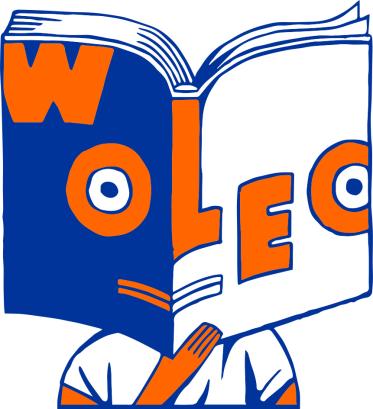
(English version below)
CLIC nodigt jullie graag uit voor de eerstvolgende WOLEC-sessie die plaatsvindt op woensdag 13 november van 13:00 tot ten laatste 14:30 in C2.07a. Spreker Prof. Birgit Neumann (Heinrich-Heine-Universität) zal een lezing geven met als titel: “Negotiating the Digital in Contemporary Anglophone Novels – ‘Cure’ and ‘Poison’ for Black Collectivities?”.
Birgit Neumann is hoogleraar Engelstalige literatuur en vertaalwetenschap aan de Heinrich Heine Universiteit Düsseldorf; ze is oprichter en directeur van het Centre for Translation Studies. Eerder bekleedde ze posities aan de universiteiten van Giessen, Münster en Passau, en was ze gastprofessor aan de universiteiten van Cornell (VS), Madison-Wisconsin (VS), Anglia Ruskin, Cambridge (VK) en KU Leuven (België). Ze is lid van verschillende internationale onderzoeknetwerken en verkozen lid van de Academy of Europe, van het Coordinating Committee voor de Comparative History of Literatures in European Languages (CHLEL). Ze is co-redacteur van boekreeksen over cultureel geheugen (Vandenhoeck & Ruprecht), over literaire en culturele vertaling (Transfer, Narr) en over Engelse en Amerikaanse literatuur (Brill). Haar onderzoek richt zich op de poëtica en politiek van Engelstalige wereldliteratuur, postkoloniale studies, Antropoceen-studies, intermedialiteit en geheugenstudies. Enkele recente publicaties zijn: Handbook of Anglophone Wolrd Literatures (redactie met Stefan Helgesson en Gabi Rippl); Temporalities in and of Crises in Anglophone Literatures (redactie met Sibylle Baumbach); Intermedial Aesthetics in Postcolonial Literatures (auteur met Gabi Rippl); Environments in Anglophone Literatures (redactie met Sonja Frenzel). Momenteel werkt ze aan de afronding van een monografie over Post-monolingual Anglophone Novels (Routledge 2025).
De voertaal is het Engels. Een broodjeslunch wordt voorzien. We vragen u om uw aanwezigheid ten laatste tegen 7 november via deze link te bevestigen. Voor meer informatie over WOLEC, klik hier.
Hopelijk tot dan!
*****
CLIC is excited to invite you to the next WOLEC session, taking place on Wednesday 13 November from 13:00 till 14:30 in room C2.07a. Prof. Birgit Neumann (Heinrich-Heine-Universität) will give a lecture titled: “Negotiating the Digital in Contemporary Anglophone Novels – ‘Cure’ and ‘Poison’ for Black Collectivities?”.
Birgit Neumann is Chair of Anglophone Literatures and Translation Studies at Heinrich Heine University Düsseldorf; she is founder and director of the Centre for Translation Studies. She previously held positions at the universities of Giessen, Münster and Passau and was Visiting Professor at the Universities of Cornell (USA), Madison-Wisconsin (USA), Anglia Ruskin, Cambridge (UK) and KU Leuven (Belgium). She is a member of a number of international research networks and an elected member of the Academy of Europe, of the Coordinating Committee for the Comparative History of Literatures in European Languages (CHLEL). She is co-editor of book series on cultural memory (Vandenhoeck & Ruprecht), on literary and cultural translation (Transfer, Narr) and on English and American literatures (Brill). Her research engages with the poetics and politics of Anglophone world literatures, postcolonial studies; Anthropocene studies; intermediality and memory studies. Here are some recent publications: Handbook of Anglophone World Literatures (editor with Stefan Helgesson and Gabi Rippl); Temporalities in and of Crises in Anglophone Literatures (editor with Sibylle Baumbach); Intermedial Aesthetics in Postcolonial Literatures (author with Gabi Rippl); Environments in Anglophone Literatures (editor with Sonja Frenzel). She is currently completing a monograph on Post-monolingual Anglophone Novels (Routledge 2025).
The lecture will be held in English. A sandwich lunch will be provided. We ask you to confirm your presence via this link by 7 November. For more information about WOLEC, click here.
We hope to see you there!

Abstract
Are we currently witnessing a shift in the intermedial make-up of contemporary novels? Rather than probing their relation to images or music, contemporary novels increasingly activate intermedial references to the digital sphere to define their affordances and socio-political potential. As they do so, novels navigate an intricate intermedial dilemma arising in the digital age: While acknowledging the force of digital media in the politics of the social, they simultaneously distance themselves from the digital by insisting on the potentials of literariness for the imagination of collectivity. In fact, in a range of novels, the digital figures as a ‘pharmakon’ (Stiegler) – neither cure nor poison, but always both and thus clearly unfolding ambivalent, even contradictory effects for collectivities.
In my talk, I will put a spotlight on a corpus of literary novels that has thus far not received much attention but that is vital to problematizing the promises and risks connected with digital media: Novels by, for instance, Teju Cole, Yomi Adegoke and Kily Reid explore the role of the digital in promoting Black collectivity and agency. Rather than feature the digital self (typically a white and male media user), they rigorously shift attention to collectivities, examining the power of both the digital and the novel in modelling a ‘we’ at a time marked by neoliberal privatization and affective polarization. These novels oppose the presumed banality of the digital: In complex acts of ‘unblackboxing’ they underscore that, by this point, the seemingly opaque mechanisms of the digital sphere can no longer serve as an excuse for tolerating technologically endorsed inequity or subscribing to techno-determinist attitudes. Despite flaunting the toxic effects of the digital, the novels do not however simply discredit it; rather, they probe intermedial connectivities beyond the paragone, programmatically pointing towards possibilities of living with different (even conflictual) media in the world. Seeking to advance research in intermedial studies, Black studies and critical internet studies, my talk will analyze how selected novels imagine the social and affective complexities of the digital in relation to Black collectives, paying particular attention to the novels’ self-reflexive positioning in an increasingly digitized media ecology.
